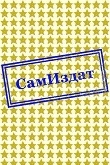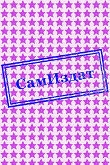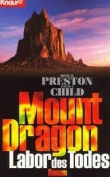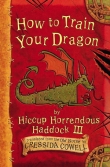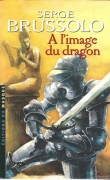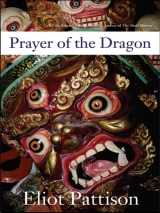
Текст книги "Prayer of the Dragon"
Автор книги: Eliot Pattison
Жанр:
Полицейские детективы
сообщить о нарушении
Текущая страница: 5 (всего у книги 24 страниц)
Chapter Three
Shan leafed through the wondrous parchment book the now-conscious man had given him, trying make sense of the stick figures that matched the one on the man’s arm, the ancient poems written in Chinese, the prayers in Tibetan, trying to grasp why it displayed a photograph of a young Shan standing proudly in a tight-collared Mao jacket with his newly graduated class of investigators. Why did his foot itch so terribly? he wondered. The man sat across from him, smiling serenely, counting Tibetan beads in one hand, holding a bloody rock hammer in the other.
“Take the book with you,” the man said in a voice that matched Gendun’s for its quiet gentleness. “You will need it where you are going.”
Shan shook his head. “I am not leaving.”
“It is you they have come for. On this mountain your life will end. Tell me this-do you prefer we leave your corpse for the birds or shall we use fire?” There was snow in the saint’s hair, mixed with yellow powder. Behind him in the shadows, two other men appeared, wearing red robes, waving the stumps of arms without hands. As they advanced he saw their faces-Lokesh and Gendun.
The itching in his foot became a terrible burning. Shan pulled up his trouser leg. There was nothing but bone below the knee. A swarm of golden beetles was devouring his flesh.
He awoke gasping for breath, his heart pounding, not aware he had leaped up from his pallet and dashed outside until he stumbled on a rock in the yard behind Dolma’s house. It took him several minutes to recover from his nightmare. He steadied himself by holding onto the flat stones that formed the top of the rear wall. The sky shimmered with stars, lending an eerie glow to the pale houses. A nightjar called. The bleat of a lonely lamb echoed off the slope. All else was as still as death. Shan retrieved his boots from the doorway, and began walking.
Though it was well after midnight, the gibbous moon and the light of a thousand stars illuminated the path. He paused on a ledge overlooking the slumbering village. Only one structure showed any life-the stable where Lokesh had relit the one hundred eight butter lamps whose light leaked between the wind-withered boards. The old Tibetan would not follow him this time. When Shan had left the stable the night before, the door had been barred from the outside by Chodron, locking in Lokesh, Gendun, and Dolma. And a guard had been posted by the entry as well.
Shan walked through the barley fields, the grain a rustling silver lake in the moonlight. He soon found the compacted trail that traversed the slope and fell into the slow, steady jog that some Tibetans used when traveling long distances in the mountains. When, much later, he reached the clearing where the murders had occurred, he lowered himself onto a flat boulder. Something on four legs, a wild dog or wolf, drank at the stream, then lifted its head in Shan’s direction and bolted. Two small animals scurried along the base of the rocks. One of the little owls that frequented the slopes uttered a short, sharp screech.
Not only wildlife seemed to revisit the campsite. After the killer, the shepherds of Drango had come, then Yangke, then the person who had left the crude warning signs and clumsily sought fingerprints, then someone-the killer again? – had returned for the bodies and obliterated a sandpainting. A miner had staked a claim to the site. Someone, either the killer or the miner, had looted the equipment. Holy men, Yangke had called the dead men. Holy men with modern camping equipment. Holy men with crude wooden effigies. What message had they placed in their sandpainting that required their killer to destroy it?
Shan slowly approached the moonlit campsite, reminding himself that this was the way the killer had approached, before dawn, as the owls called. Smoke had probably been rising from the smoldering fire.
What had the dead men said to one another before falling asleep? As great as the mystery of the killer’s identity was the mystery of the victims’. Lokesh would insist that the spirits of the dead, like those of all murdered men, still lurked nearby. Shan found himself scanning the darkened slope. He would have welcomed a conversation with a ghost. His first question would be the one that had gnawed at him since visiting the death site the first time, when he’d seen the lightning snake and a portion of a little wooden figure. Why were these Tibetan things being done in non-Tibetan ways?
He looked back at the grove of trees where the two men had lain before dying. Had they exchanged pleasantries, spoken of family, exclaimed about the endless night sky? Had they, as some old Tibetans believed, seen a meteor just before their deaths? He entered the grove and almost stumbled on a low mound of dirt. Someone had been digging. He dropped to one knee, studying the moon shadows. At least a dozen small holes had been dug since he had been there-dug, then filled in.
He paced in front of the circle of tall rocks where the bodies had been found, surprised at the fear that kept him from walking into the shadows. He jogged past, on unfamiliar ground now, at each moonlit fork taking whichever path went higher. By dawn he was still far from the summit but had reached the last of the long shelves of land below the high, jagged peak. The windswept, barren place was separated from the far side of the mountain by a forbidding fifty-foot escarpment, the stony spine that divided east and west. While studying the escarpment, he drank from a brook and chewed on a piece of hard dried cheese he had saved from the evening meal Dolma had brought them in the stable. Yangke had been right in saying that the worlds of the two sides were separate. This natural barrier was far more effective than any razor wire the army might use. He could see half a dozen spots where the wall had split apart, though from a distance each appeared to be filled with boulders or great slabs of rock that had fallen.
It took him an hour to explore the first three clefts, struggling up the jumble of rocks that filled each, until he was forced to retreat by massive blocks of stone that could not be climbed without ropes. He was about to enter the fourth cleft when he spotted movement half a mile away. A mountain goat had materialized as if out of the wall itself, one of the nimble white creatures native to the ranges. Shan eased into the shadow of a boulder and watched as another shaggy goat appeared, then three young kids and another adult. As the small flock wandered down the slope, languidly nibbling at the lichen-covered slabs, he slipped along the wall. Had he not fixed the point in his mind he could easily have missed the goat’s portal, for it was not one of the clefts he had seen but a narrow shadow behind an outcropping that folded out, parallel to the wall.
The twisting trail was sometimes so narrow both shoulders brushed against stone, sometimes so low between overhanging slabs he had to crouch to continue. After two hundred yards the trail was blocked by a huge mound of rubble that seemed impassable. But then he noticed scattered piles of goat droppings on several boulders and pulled himself up onto the first of the massive rocks. More than once Lokesh had joked with him that those who lived on the fringes of Tibet, as they did, had to be half goat to survive.
He paused after several minutes’ hard climbing to study the scratches and gouges that began to appear on the stones underfoot. Someone had worked with chisels and levers, prying up rocks, levering them this way and that, clearing if not a path then at least a course that could be attempted by creatures less nimble than a goat. Near the crest, at the center of the wide escarpment, two huge fallen slabs created a treacherous pit at least twenty feet deep. A goat might have tried the tiny five-inch lip of rock that followed the side wall but for humans someone had laid a makeshift bridge of juniper poles and twine, constructed like a ladder, with narrow cross pieces every two feet.
The jumble of rocks grew more treacherous, with sharp jagged stones, some scorched by explosives, jutting upward, threatening injury. A huge bird of prey, another lammergeier, soared overhead, interested not in Shan but in the small furry rock pikas that scurried in front of him. He tried to visualize the high-walled path that had once existed underneath him. The dark winding passage would have made a natural kora, a pilgrim’s path, which the lamas of earlier centuries laid out not simply to lead to the homes of deities but also to teach the pilgrim something about hardship and humility.
Shan and Lokesh had visited a pilgrim’s shrine on another mountainside earlier that year, reached through a much shorter passage whose walls had been painted with guardian demons. It was to have been the last day of that painted rock shrine. The government was about to destroy it in order to erect a radio transmission tower. Although the engineers agreed to move the painted rock, Lokesh had settled onto the ground as the bulldozer advanced.
“That rock picture is just a bunch of old peeling paint, abandoned by its deity years ago. They don’t understand. Here is what is important,” the old Tibetan had said, patting the path, compacted from centuries of pilgrim’s prostrations. “Here is the sacred thing.” He had not resisted when the machine’s operators lifted him bodily and set him on the ground fifty feet away, then continued ripping up the old path. But he had carried a little sack of the compacted earth with him ever since.
On the far side of the ruined trail he was traveling now, Shan found proof of his speculation that inhabitants of the eastern slopes were aware of the passage. On one side of the entrance to the cleft was an image in faded paint of Tara, the mother protector. Opposite the Tara was an image painted by another kind of pilgrim. In fresh, bright colors, someone had portrayed a four-foot-high Buddha sitting, like a cartoon character, in a miniature convertible car, cigarette dangling from his mouth, sunglasses covering his eyes. He had reached the real world.
The landscape on the eastern side of the mountain was gentle, the slope sweeping outward for miles, interrupted by occasional outcroppings and a few low ridges that jutted like fingers from the main peak, joining with the matching slope of the neighboring mountain to create a wide, lush, and empty valley. Almost empty. In the distance, perhaps five miles away, was a small compound of white buildings, surrounded by half a dozen antenna masts and three huge white saucers that seemed to have been tipped by the wind. Satellite reception dishes.
Much closer to Shan, half a mile away, was the only other visible structure, an old dzong, one of the small mountain fortresses that had once dotted the Tibetan countryside. Centuries earlier, its builders had chosen its location well, laying its stonework at the end of one of the long, jutting ridges, where the finger of rock and grass abruptly plunged two hundred feet to the valley floor. Its crumbling five-story stone tower would once have been manned for signal fires. The narrow windows had been designed for archers. Later, after Tibet’s warring kings had been replaced by Buddhist leaders, many such dzongs had become monasteries or hermitages. Now, if Shan could safely enter the ruins, it would be a perfect perch for studying the land beyond.
He hurried across the high meadows, wherever possible using outcroppings to block the line of sight to the distant compound below, knowing that its sentinels could use powerful lenses to scan the landscape. He paused for a moment, ambushed by his emotions again, a voice within shouting that he had to return to the village. He would find Gendun beaten unconscious. He would find Lokesh lashed to a canque. He would reach the stable and find nothing but bloody spoons on the floor. The waking nightmares would not leave him, distracting him so completely he did not realize something vital about it until he was only fifty yards away from the dzong.
The building was inhabited. The narrow windows were glazed. The structure at the base of the tower was new, though built of stone in the traditional boxy, tapered wall style of the original dzongs. Flowers were planted along the walls. Prayer flags flapped in the shadows behind the tower. Not prayer flags, he realized as he ran toward the shadow of another outcropping. Laundry.
“You’re not a soldier,” a voice behind him suddenly declared. “You’re not a scientist. You don’t look prosperous enough for one of those damned miners.” The voice was oddly whimsical. “If I shot you right now, we could call it a socialist experiment and devise a sad, politically correct story of the path that led such an antisocial creature to his inevitable death by a bullet.” The words were spoken in fluid Mandarin, tinged with a Beijing accent.
Shan replied in a level voice as he turned to face the speaker, hands open at his side. “The particular experiment I represent was declared a failure years ago. What is left was considered not worth the price of a bullet.”
He was prepared to confront a soldier, an angry bureaucrat, anything but the figure in front of him. The man was a head taller than Shan, well groomed and athletic, with long blond hair going to gray that covered his ears. Resting in the crook of one arm was a high-powered rifle and a case for a compact set of binoculars hung from the belt that held up his khaki trousers. A brown cashmere scarf was tucked under the collar of his leather jacket, which covered most of a black T-shirt bearing the image of a red dragon over the legend, in English, BORN TO BE WILD.
“Then how do I classify you?” the stranger asked. “Animal, mineral, or vegetable?”
“Perhaps you believe in ghosts?” Shan ventured. He remained still as the stranger circled him, examining him from head to toe.
The man seemed to appreciate Shan’s wit. “I think,” the man said with a grin, “we will just call you the most interesting luncheon guest we have had in weeks.” He gestured Shan toward the dzong.
It was the most extraordinary new construction Shan had seen in Tibet. On the outside great care had been taken to keep the structure’s sixteenth-century appearance, right down to the small mound of mani stones near the door. But inside were touches that spanned the five centuries since. The entryway was flanked by two long portrait scrolls of Chinese emperors, hung over a beige fabric wall covering. Bamboo stalks grew out of an elegant willow green celadon pot. As the stranger left his rifle by the door, Shan leaned over the nearest painting of one of the early Ching emperors wearing a fur cap and yellow brocaded gown embroidered with dragons. It was not a reproduction. From a speaker somewhere behind the planter came the soft, hollow music of a wooden flute.
Shan followed his escort up two flagstone steps into a large room lined with a huge carpet in which were woven traditional Tibetan symbols. The left wall was covered, floor to ceiling, with shelves of books and that to the right with paintings, dramatic mountain landscapes, and maritime scenes, all in Western style. In the center of the floor was a huge overstuffed U-shaped sofa, arranged to give the occupants a view out a long row of windows in the far wall. As his escort paused, gazing toward a half-closed door by the paintings, Shan took tentative steps toward the windows, his eyes on a powerful telescope that stood on a tripod.
He paused and placed a hand on the sofa, pressing his fingers into the soft fabric. It wasn’t real. It couldn’t be real. The house was impossible. It belonged in the Swiss Alps or the mountains of North America. Except for the homes of senior Party officials he had never seen such a residence in China, let alone on a remote mountain in Tibet.
“You may sit,” his companion said, still in perfect Mandarin. “The doctor does not begin dissections until after his morning refreshment.”
Shan did not sit but walked past the sofa, watching the westerner, glancing at the three doors that led out of the large, comfortable chamber, mentally tracking the distance to the entrance behind him, his instincts shouting out warnings. Soldiers must be near. Any moment he would be seized.
The blond man lounged on the sofa, hands behind his head, an amused grin on his face as he watched Shan. The closest of the three doors leading out of the room was open, revealing a sunlit chamber containing a large wooden desk. The shelves built into the wall behind it held three-ring binders and notebooks, dozens of them, with carefully printed labels too small for Shan to read from where he stood.
“I was not aware there were still palaces left in these mountains,” Shan remarked.
The westerner’s grin was honest, almost friendly. “Dr. Gao and I long ago decided the only good place of comfort is a hidden place of comfort.”
Shan lingered another moment at the office door. On the wall behind the desk were at least thirty photographs, in identical gold frames, most in black and white. Some were posed portraits of distinguished gatherings, many were of men shaking hands with victorious smiles, three were of a man standing beside models of rockets. One showed an actual rocket sprouting out of a cloud of smoke. A chill crept down Shan’s spine. Even from that distance he could recognize several of the men in the pictures. At least two were former general secretaries of the Party and three were past commanders of the People’s Liberation Army.
Sounds behind the door on the opposite side of the room drew his escort’s attention. Shan stepped to the second door, which led to a short flight of stone steps, beyond which he could see a chamber furnished only with a bamboo mat on the floor, three of its walls lined with the fragrant wood used in temples, the fourth consisting entirely of glass, opening toward the long fertile valley below. A Chinese man with close-cropped graying hair stood facing the window, both arms raised parallel to the ground, right arm bent backward, left slowly moving forward, in one of the traditional postures of Tai Chi, called Bending the Bow.
The man was clad in a short white robe and loose white pants, his feet bare. Below the window five granite spheres of different sizes rested on a bed of white sand. The sounds of the wooden flute came from concealed speakers. Shan warily stepped to the side of the doorway, pushed a hand into his pocket, and pinched his thigh. He needed to awaken from this strange dream.
Something touched his arm. He spun around. The blond stranger was extending a glass of iced water. Shan accepted the glass, then caught himself staring at it and looked up self-consciously.
“It’s just water,” the man explained, lifting an identical glass to his lips.
“It’s the ice,” Shan said. “I can’t remember the last time I had a drink with ice cubes.” The world Shan lived in now did not avail itself of refrigerators, televisions, telephones, or any other machines.
“You don’t get out much.”
“I am out,” Shan said, still wary, “all the time.”
The westerner grinned again. “We’ve got tons of it. The army first used this as a barracks for guards, a patrol base. There’s a walk-in freezer downstairs that once supplied twenty men. We only need to be resupplied four times a year. When I get lonely for home I walk inside and slide around the floor.”
“Ah. I grew up in the north as well,” Shan said. “I used to look at photographs of skaters when I was a child. One year I greased blocks of wood and tied them to my feet.”
“We used to skate for miles down a river, almost to the Baltic Sea. There were kiosks on the ice that sold little sausages on sticks and sugared tea.”
“Poland?” Shan queried, and dared a long swallow.
“The German Democratic Republic. Its athletes were so good the rest of the world had to make it disappear. My name is Heinz Kohler.”
Shan shook the hand that was offered but did not reply. He drained his glass and stepped to the telescope, half expecting Kohler to stop him when he pressed his eye to the tube. He pulled back in surprise at the image that leapt to view, glanced at the bemused German, and looked again. In a great nest on a cliff nearly half a mile away he could see three young birds of prey, their beaks uplifted, opening and shutting. The home, no doubt, of the lammergeier he had seen.
“Karl, Friedrich, and Albert,” Kohler declared.
“Marx,” Shan ventured after a moment, “Engels, and Einstein.”
Kohler’s blue eyes went round for an instant and he nodded respectfully. “Dr. Gao is on a first-name basis with all the great ones.”
Shan ran his hand down the sleek, powerful instrument. The telescope had been imported long ago, probably from Kohler’s native country, but the squat tripod was homemade. A small metal plate, painted over but still legible, declared it to be the property of the People’s Liberation Army.
“I should be leaving,” Shan said with a glance toward the entrance.
“That would be ungrateful.” Kohler settled into a wooden chair by the entry as if assuming the role of sentry and gestured Shan toward the sofa. On the low table in front of it were magazines, in Chinese, English, and German, all at least two months old, devoted to science and engineering, fashion and gardening. None were newsmagazines.
For ten uneasy minutes Shan listened to the muffled clink of dishes and to footfalls passing the one doorway he had not been able to explore. For a moment he heard the dim, urgent beat of rock and roll. He paced the width of the room, studying it again, listening to the creaks of the floorboards, seeing now that although the furnishings were elegant, their construction was rougher than he had first realized. Finely trimmed boards had been fastened over crude planks. It had been built as a barracks, not a palace. But someone accustomed to palatial comforts, with palatial possessions, was living in it. He stepped to the window, fighting the urge to train the telescope on the distant installation below. It was not large enough for an infantry garrison and had none of the repetitive white ground hatches and mobile cranes that would indicate a missile base.
He became aware of Kohler standing expectantly at the far door, which now stood open. Shan stepped past him into a small, elegant dining chamber. The walls were of white plaster, and the paintings displayed on them of bamboo and snow and birds. On the table were four porcelain bowls of traditional Tibetan soup with noodles. Behind the door was a large framed work of calligraphy, one of the slogans handwritten by Chairman Mao, copies of which had once been framed and hung in every government office. STRIVE FOR THE PEOPLE, it proclaimed. It was, he suspected, also an original.
“I should wash,” Shan said.
Kohler tossed him one of the linen napkins from the table.
A youth burst through the swinging door bearing a bowl of steaming rice and vegetables. He was Chinese, perhaps twenty years of age. His long hair had a narrow blond stripe bleached along the left temple. His clothes were all black. Muffled music came from a pair of earphones hanging around his neck, connected to something small in his pocket. The boy paused, studying Shan for a moment, taking in his ragged clothes. A restrained laugh escaped his lips. He turned to Kohler, extended a finger to his brass-studded ear, and pulled the trigger of an imaginary pistol.
A moment later, the man Shan had seen doing meditation exercises entered, now wearing a neatly pressed white shirt and khaki pants. The youth stiffened, quickly removed his headphones, and disappeared into the kitchen. The man greeted Shan with a nod, his eyes showing not the contempt Shan expected but curiosity. Shan’s tattered work shirt was hard to miss, but he was looking at Shan the way Shan would examine a stranger, taking in the small scars on his hands, evidence of his years of manual labor, the freshly split fingernails that spoke of recent rock climbing, the small round nub of scar on his neck that, to the experienced eye, suggested the hospitality of the Public Security Bureau.
“I am Gao Hu Bo,” his host offered, gesturing for Shan to sit as he took his place at the head of the table. “Please,” Gao said, pushing the bowl of rice toward Shan. “You are no doubt hungry from your morning exertions. Few goats are up to that passage.”
“I was seeking a few other goats,” Shan said in a level voice.
Gao’s steady gaze did not drop but a thin smile formed on his lips. “Officially this entire valley is a military reservation. Officially, Heinz and I are supposed to call friends below should intruders appear. Their response time averages eleven minutes. They would convey you to a rather unpleasant place.”
“Of course,” Kohler interjected, amused by the conversation, “what is unpleasant to one man may be mere routine to another.”
The youth in black reappeared, carrying a teapot, and slid into the last empty chair.
“Officially,” Shan said, every nerve alert, acutely aware of the treacherous ground he trod on, “this would not be an approved place for a general to retire to.” For Gendun’s sake, he could not afford to be arrested.
The youth choked back a laugh. Then, eyes lowered, he began to noisily consume his soup.
“Since you are as yet unacquainted with us,” Dr. Gao replied in his smooth, refined voice, “we will not take that as an insult. Generals are seldom invited to this table.”
“Still,” Shan said, “I can’t help but wonder if your invitation to lunch means I am to be the main course.”
Gao’s laugh was genuine. He rose and extended his hand. “I like you, comrade. When I saw you coming down the slope in the open sunlight I said, there is a man without fear, the rarest of creatures.”
Shan hesitantly took the man’s hand. “I am called Shan,” he said, “and in the world I inhabit fear is as common as salt.”
Gao held his hand for a moment as he gazed at the row of numbers tattooed on Shan’s forearm. Shan mentally raced through the possible explanations for his host’s presence there. One moment Gao seemed like a monk, the next a gloating bureaucrat. Gao was not a soldier. Senior politicians were sometimes disciplined with internal exile, but never in such comfort.
“My nephew, Feng Xi, is visiting from Beijing,” Gao explained as he sat again and began to eat. “Summer vacation from his labors at the university.”
The youth acknowledged Shan with a disinterested nod. “Thomas,” he interjected. “My name is Thomas.” Even before Shan had been sent into exile, to the gulag in Tibet, it had become popular among certain of China’s globally connected youth to adopt Western names.
Gao offered the boy a patient smile and spent several minutes describing the nest of lammergeiers they had been observing. Kohler took over the conversation, speaking about the weather, recent news reports describing the cloning of a dog, the announcement of a new Chinese space mission, and even, to Shan’s mute surprise, a new movie about invaders from outer space.
“Of course, if it were true, the aliens would have had to travel thousands of years to get here,” Thomas interjected.
“Hardly seems worth the trouble,” Kohler rejoined.
“It is impossible to travel faster than the speed of light,” the youth added with a hint of pride. “We’ve done the calculations.”
“Nearly as difficult,” Shan offered, “as trying to bridge the worlds on the two sides of this mountain.”
“We know of no one else who has traversed the old pass, if that is what you seek to learn. No one crosses without our knowledge since, as you see, we are situated like a gate across the path.”
“There are miners.”
“The miners are the perfect buffers for us. They may be terrified of us but everyone else is terrified of them.”
Shan declined a serving of what the boy described, in English, as French fried potatoes. “I know that for some men, forbidding them something only makes it more desirable.”
Kohler set his utensils down. “At our table, we are the ones allowed to prod and pry. Why are you here?” he asked.
“Because two men were murdered on the other side.”
“And are you playing policeman?”
“A man may be punished although there is no proof of his guilt. A lama is being punished for not condemning the man.”
“Rapaki?” Kohler asked. “Who would want to hurt a crazy hermit? Good court jesters are hard to come by.”
Shan did not correct him. The conversation was beginning to get interesting. It was the first time he had heard that name.
Gao proclaimed in a contemplative voice, “Proof is a dangerous concept. The essence of science is showing that most truth is opinion.”
“A dangerous proposition,” Shan said, “when your government is dedicated to the opposite.”
Gao lowered his cup. “I’m sorry?”
“You’ve lived in Beijing. The stronger the opinion, the greater the truth.”
Kohler glanced at the doors-a habit, Shan suspected, from a career spent worried about who might be listening. “Truth is what the people need,” the German said in a pious tone. It was an old slogan, one blazoned on public walls.
“Who areyou?” Gao’s question, though whispered, was as sharp as a blade. The promised dissection had begun.
“Just someone else who has difficulty adjusting to the rest of the world.”
Kohler gazed at Shan as if trying to decide whether to take offense. “ Weconquered the rest of the world,” Kohler declared, “and are enjoying the fruit of our labors.”
Gao, still staring at Shan, seemed not to hear the German. As a female appeared and began removing dishes, the older man rose and silently followed her into the kitchen.
Thomas’s silence was one of amusement, but Kohler’s was becoming one of unease. He seemed to have seen something in Gao that disturbed him. Down in the valley, beyond the small white buildings, a squall brewed.
“How many years have you and Dr. Gao been in Tibet?” Shan inquired.
“Draw a radius of five hundred miles and we have spent almost our entire careers inside it,” Kohler said.
“Which makes you very good at doing something the government finds important,” Shan observed. The circle Kohler described included most of China’s key nuclear weapon research and missile establishments.

